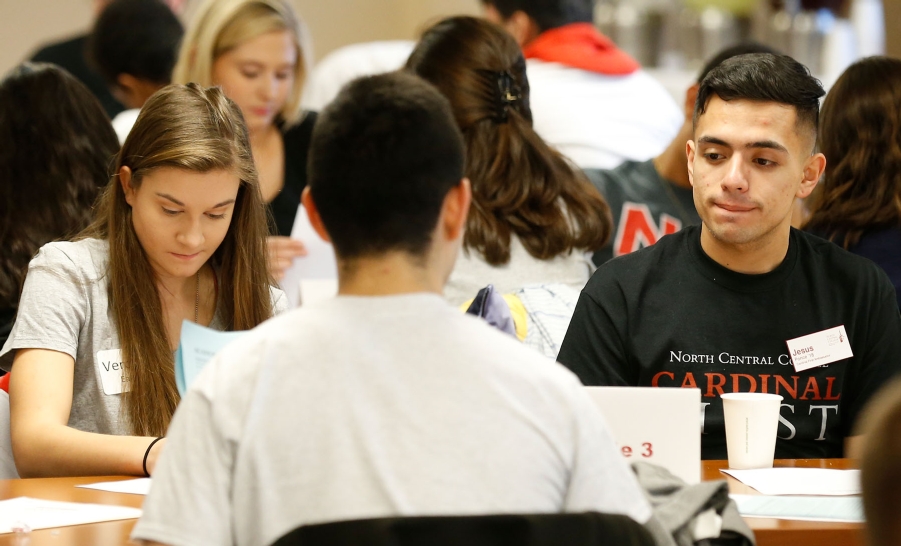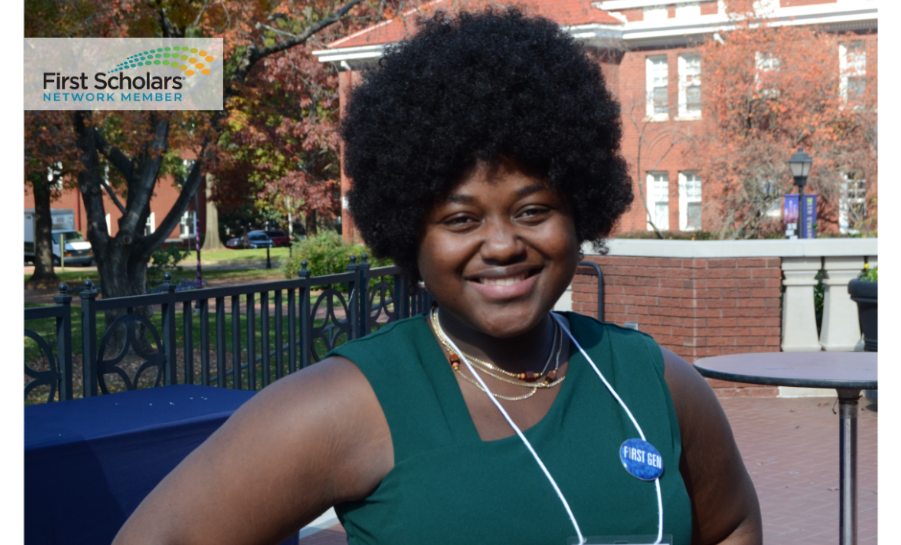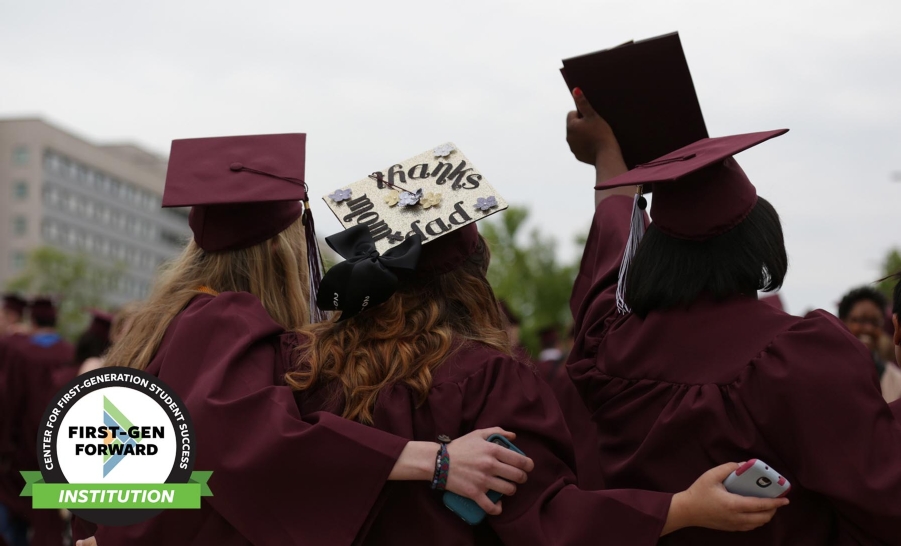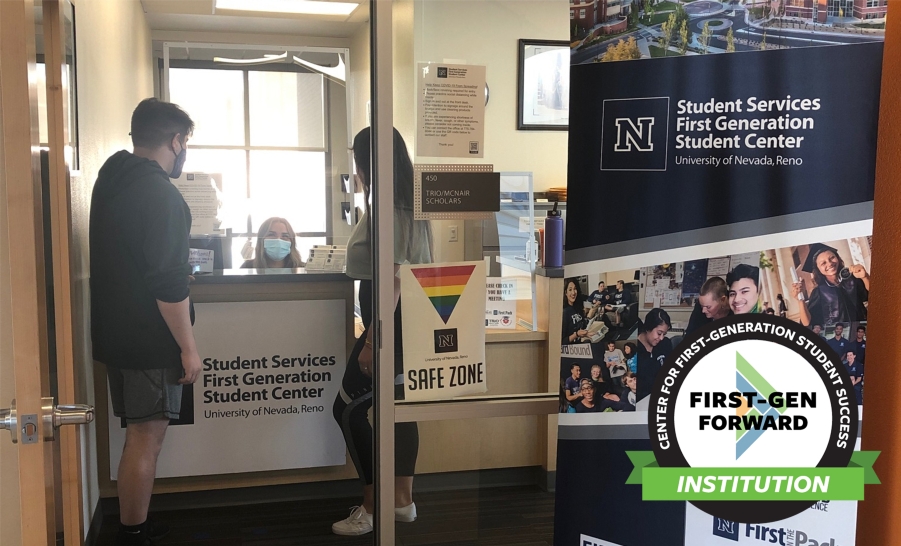Successful Approaches to Using Data to Support First-generation Students at Rutgers University
James H. Whitney III Ed.D., Mercer County Community College / FirstGen Forward / January 19, 2018
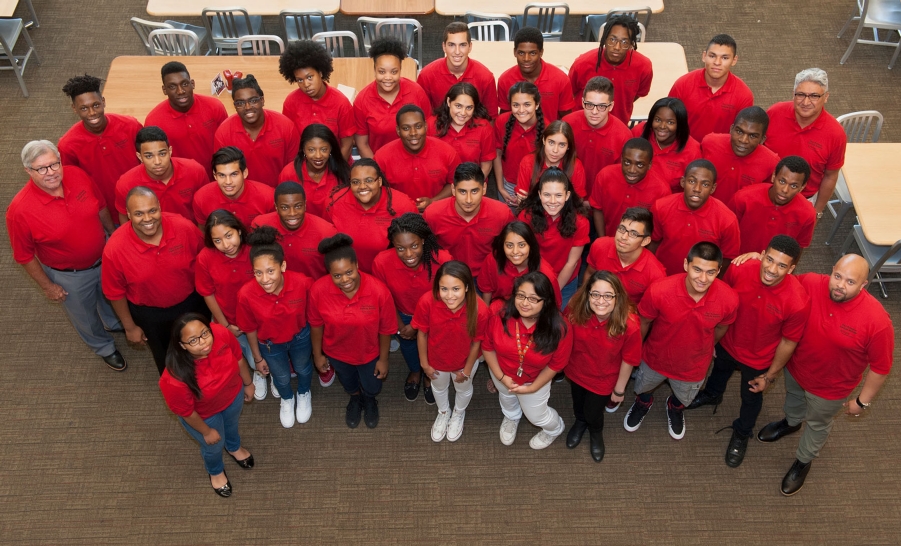
Nearly 30 percent of the undergraduate population at Rutgers University-New Brunswick identify as first-generation. In November 2015, Rutgers–New Brunswick Chancellor Emeritus, Richard L. Edwards, charged schools, academic departments, and administrative units with developing initiatives that achieve the overall mission of providing a more inclusive and supportive community. Within this charge was the mission of improving access and equity to students that are first-generation, low-income, or underrepresented (or a combination of all three) through the creation of RU-1st and the expansion of existing programs within the unit of Student Access and Educational Equity (SAEE).
RU-1st, unlike other support programs, was not created as an administrative unit, but rather as an extension of the SAEE to coordinate campus-wide initiatives aimed at first-generation students. There are five federally funded support programs including Student Support Services, Upward Bound, and the Ronald E. McNair Program. In addition to federally supported programs, the state-funded Educational Opportunity Fund programs (EOF) are among the largest in the state providing access and support for students from first-generation and low-income backgrounds within New Jersey. These programs have demonstrated their effectiveness through consistently improving educational outcomes for first- generation students. The graduation rates for students in the EOF program exceeds the national average for public institutions. Nationally, the six-year graduation rate for first-generation students stands at approximately 50 percent, but students within the three comprehensive support programs within TRIO Student Support Services graduate at 70 percent or higher within six-years. The work of the federal and state programs provide a strong foundation for identifying strategies that work and to help others increase support for more students on campus, as these state and federal programs only serves a fraction of the students in this population.
To meet the needs of these students and the Chancellor’s charge, the RU-1st Alliance meets regularly to provide a network of information and resources, discuss issues and best practices, develop high-impact experiences, and to maintain a website full of resources for first-generation students. This coordinated effort aims to increase the visibility of resources and services available across our large campus, as well as provide a clearinghouse of best practices to be shared among schools, academic departments, and co-curricular units. The Alliance makes recommendations to campus leaders as needs arise for the support of all first-generation students. This coordination and advocacy will follow the work of SAEE in partnering and advocating for resources that support first-generation students. Additionally, the RU-1st Alliance aims to achieve higher retention rates and to raise four-year graduation rates for first-generation students.
Key strategies implemented to date are:
- Creation of a campus-wide database for prospective and continuing students to find programs or events and advisors that support first-generation students by school and campus.
- Coordination of this happens at the highest level via the Vice Chancellor for Undergraduate Academic Affairs who funds many of these initiatives.
- Expansion of institutional dollars to Student Support Services programs to double the number of first-generation students supported and hiring of two full time academic advisors.
- Chancellor’s Study Abroad Scholarship providing fully-funded break experiences for first-generation students who may have never traveled or cannot afford traditional international experiences.
- Provided additional advising and programming support to expand TRIO-Student Support Services to serve more first-generation and low-income students.
- Created the Paul Robeson Leadership Institute focused on first-generation and underrepresented men in higher education (This has a summer program and all enrolled students receive a additional support and advising.)
- Developed a number of academic initiatives including the creation of the Paul Robeson Leadership Certificate and courses such as the Black Male Identity.
- Developed RU-1st Fridays. Social capital programs such as trips, programs, and events to bring students together on campus.
- Host an Annual RU-1st forum to bring national first-generation experts to provide professional development for faculty and staff.
- Created RU-1st first-year seminars as transitional courses co-designed with faculty and staff to bring academic research to small settings, while connecting students to academic advising and support services.
